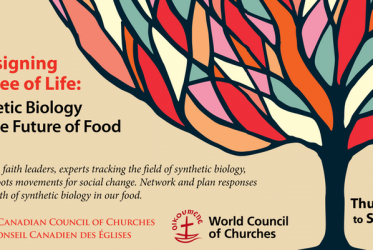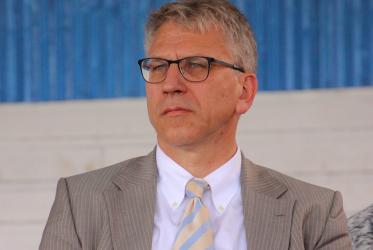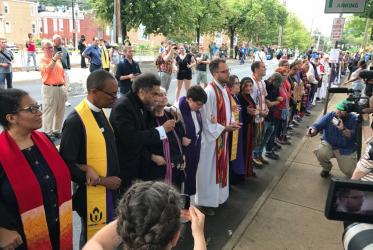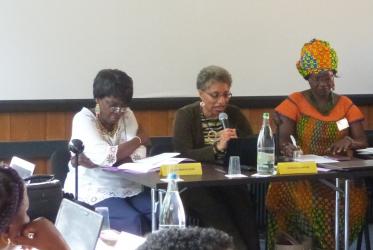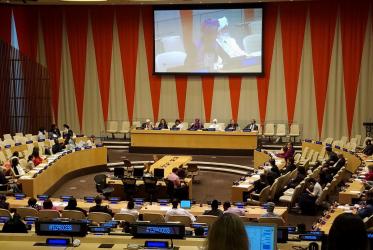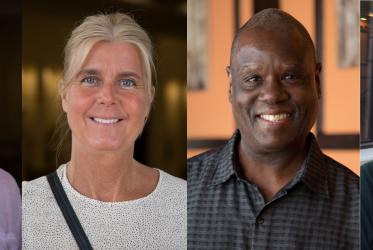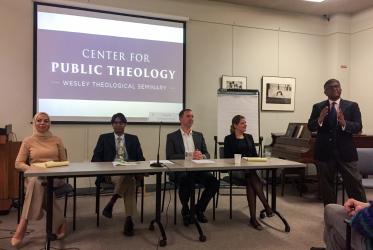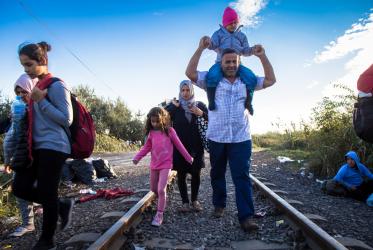Displaying 141 - 160 of 270
19 September 2017
Redesigning the Tree of Life: Synthetic Biology and the Future of Food
02 - 04 November 2017
Toronto, Canada
Faith on the fast-track - for children living with HIV
13 September 2017
WCC general secretary extends condolences to flooded communities
03 September 2017
Orthodox bishops in USA condemn racist violence
31 August 2017
Presbyterian leaders: racism in USA is “pernicious poison”
31 August 2017
In Charlottesville, can “the power of love” prevail?
14 August 2017
"We have our work cut out for us"
10 August 2017
"Church has huge responsibility empowering women"
26 July 2017
Peace consultations of hope
07 July 2017
UN discussion focuses on women, HIV and property rights
21 March 2017

